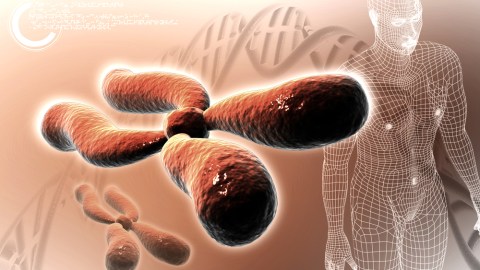Sex and the Genome: Cultural Gender Conceptions Influence the Genetic Science of Sex

If the 20th century was the century of silicon, many believe the 21st will be the century of biotechnology, and especially genomic technology. And as we stand at the advent of this ‘genomic century,’ Harvard professor Sarah Richardson argues, “we are going to need to have an open, frank conversation about how we view human difference.”
Richardson, the author of Sex Itself: The Search for Male and Female in the Human Genome, points out to Jeff Schechtman in this week’s Specific Gravity interview that human genomes are 99.9 percent identical, with the exception of the X and Y chromosomes. Nonetheless, new genomic technologies make it very easy to demonstrate sex difference. Richardson says “there are quantitative technologies that allow us to simply measure organ by organ – the liver, the heart, the brain, or disease by disease – diabetes or cardiovascular diseases – and publish a paper showing sex difference.”
What we have a much harder time describing, Richardson says, is the meaning and significance of those differences. One view – that is both scientific and cultural – is that there is an “unchangeable binary between maleness and femaleness.” And yet it is a more scientifically accurate view, in Richardson’s eyes, that there is “a distributed and convergent process throughout the genome, and there are many pathways for healthy maleness and femaleness.”
We still have a lot to learn about the way the genome functions. We tend to look to science to try to settle our most difficult questions, Richardson says, as if it is a neutral arbiter. And yet, Richardson says throughout history ideas about gender have always tended to drift back and forth “into science and then back out into the culture.”
And so as we set out in the brave new post-genomic world, Richardson says “we need a patience with the data and an openness to surprising results.” We then need incorporate these results into a cultural discussion of differences. And then, Richardson says, “we can do this research in an ethical space and feel that we are doing the right thing.”
Listen to the podcast here:
Click here to listen on your iphone or ipad
Image courtesy of Shutterstock




